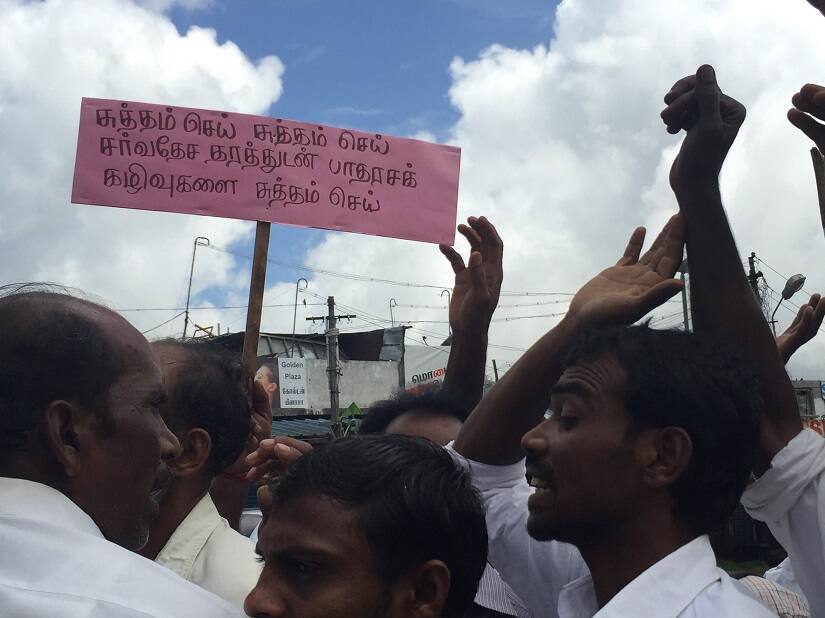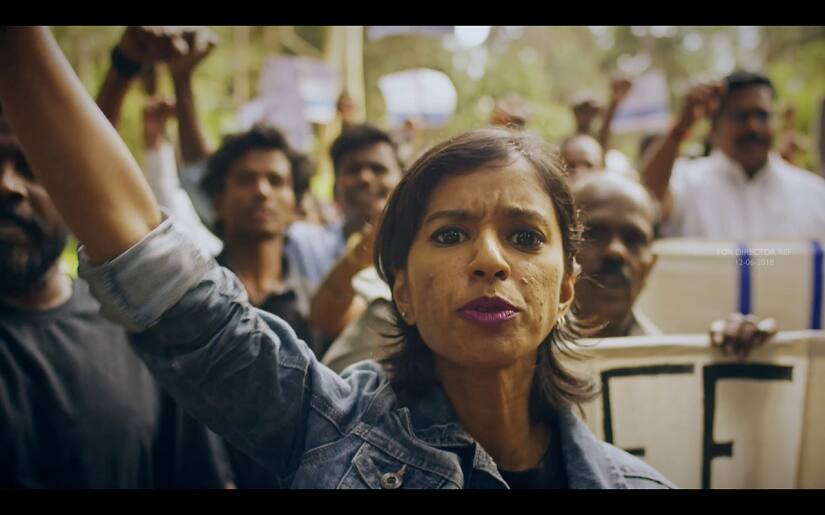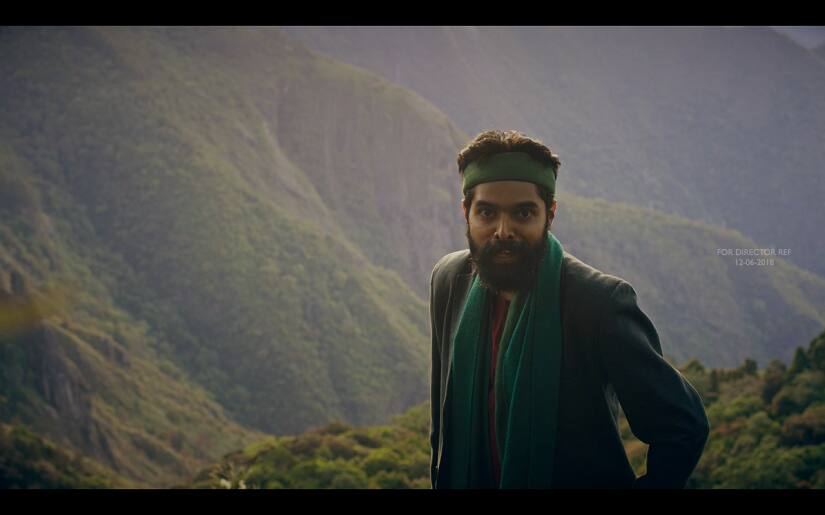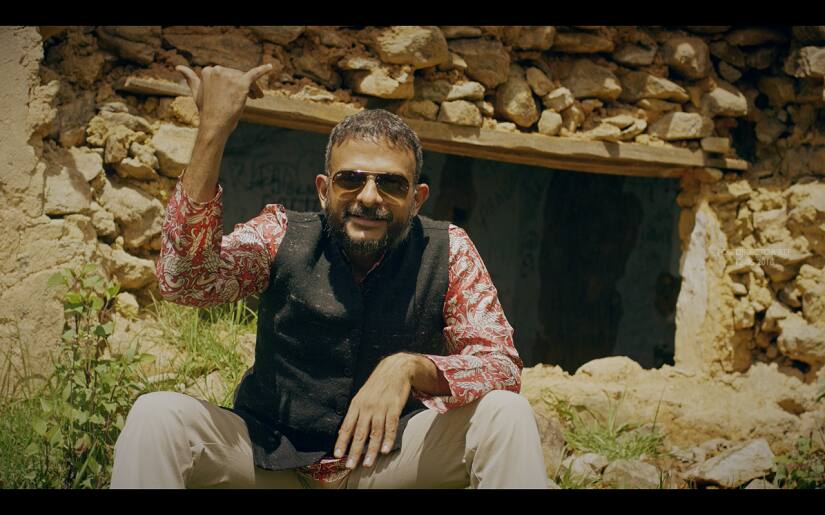When the music video for ‘ Kodaikanal Won’t’ released on 30 July 2015, it instantly went viral. Featuring Chennai-based rapper/activist Sofia Ashraf, and set to catchy tune of Nicki Minaj’s ‘ Anaconda’, ‘Kodaikanal Won’t’ was more than a clever spoof — it was a message to the conglomerate Unilever whose thermometer plant at Kodaikanal had been allegedly contaminating the region for years. What followed was a social media outcry (even Minaj tweeted about it), signed petitions and most importantly, awareness about the issue. Unilever CEO Paul Polman too promised to “make amends” and compensation was paid to the factory workers who had been employed at the now-shuttered thermometer plant. However, the question of what was to be done about the toxic waste that the factory had been reportedly spewing was not resolved. So the ‘Kodaikanal Won’t’ campaign was revived, in a bigger and more aggressive avatar. Launched on 29 June 2018, it features a collaboration between Carnatic vocalist and Ramon Magsaysay award winner TM Krishna, Sofia Ashraf and indie rocker Amrit Rao and is called ‘Kodaikanal Still Won’t’. The campaign revival was triggered by Unilever’s failed trial remediation in November 2017 that ended up mobilising more mercury in the environment than it recovered. The company’s proposed clean-up will leave behind 20 times more mercury in Kodaikanal’s soil than is considered safe for residential areas in the United Kingdom, and 66 times more than levels considered safe for soil, plant and animal life in the Netherlands. [caption id=“attachment_4632521” align=“alignnone” width=“825”]  File photo of protests at Kodaikanal[/caption] The campaign highlights “environmental racism” — when environmental harm is disproportionately apportioned to marginalised communities, and when the agencies or parties discriminate by deploying environmentally substandard practices when operating among such communities. Chennai-based social activist Nityanand Jayaraman has been actively involved with this movement for the past 18 years and explains, “Such a shoddy clean-up process would never be permitted in Europe. Unilever’s refusal to apply the best standards for India reeks of environmental racism. Ignoring the failure of the trial remediation, the Tamil Nadu Pollution Control Board has given the go-ahead for a full-scale clean-up. If that happens, it will be nothing short of a major environmental disaster that will poison the watershed forests of the Kodaikanal Wildlife Sanctuary.” Sofia Ashraf says the campaign and the people of Kodaikanal haven’t made any unjustified demands. “It’s ridiculous, how long will India sit and say ‘okay’? We are not asking them for anything untoward. Unilever has caused the pollution. They are frankly insulting us by saying that we will clean up but to a sub-standard quality, pretending like it’s a favour to us. So it was necessary to create a song that will call out this idea of racism,” Ashraf says. [caption id=“attachment_4632531” align=“alignnone” width=“825”]  Sofia Ashraf in ‘Kodaikanal Still Won’t’.[/caption] Ashraf had written the 2015 song, the video for which was made on a shoe-string budget of Rs 15, 000. For ‘Kodaikanal Still Won’t’, the idea was initially to set it to a nursery rhyme. “That somehow didn’t take off. Then I wrote another draft with inputs coming from Nity (Nityanand Jayaraman), Archana Sekar. But with TM Krishna coming on board it went to some other level,” she says. “Musically it has been really exciting for us. When I got this amazing opportunity to work with someone like TM Krishna, who has been my idol for many years, I thought it will be really amazing to have almost a dialogue (musically) between rap and Carnatic. So it is something like rap asks a question and Carnatic gives the answers through a melody. It’s a genre that I have experimented with before, but not on this scale, and hence it was very important to bring in a composer who understands both rap and Carnatic,” she adds. Bengaluru-based indie rocker Amrit Rao was the most appropriate composer for this challenge. Having been trained in Carnatic music and rapping at his own concerts, Rao knew exactly how this amalgamation of genres should occur. “I always write, compose and sing songs that are socially conscious and relevant, which is probably why Sofia — with whom I’ve collaborated on several occasions — approached me on behalf of the project. They were looking for a very Chennai gaana/kutthu based song with a metal/rock sound and I (with my band Amrit Rao & The Madrascals) completely fit into that genre. Plus it helped that I could relate to the cause,” says Rao. [caption id=“attachment_4632541” align=“alignnone” width=“825”]  Amrit Rao in ‘Kodaikanal Still Won’t’.[/caption] Rao explains that the base of the song is kutthu metal/Rock with layers of Carnatic and rap. The versatile TM Krishna complements Sofia’s rapping with Carnatic swarams and even pulls off the kutthu feel in the sections where he sings along Rao. Telling us more about the 2-minute-56-second-long video, Rao adds, “I knew that the main hook line and chorus had to be catchy, hard-hitting and funny all at the same. We used the original ‘Kodaikanal Won’t’ line for the recall factor. The idea was to come up with a tune that can be Carnaticised (sic) without sounding cheesy. Carnatic music and the Carnatic musician (TMK) give you that freedom. Also, Sofia’s lyrics were perfect for this. The idea was to keep it simple for the listener, but it’s actually a complicated song to create and mix. The musicians also played a big part in the collaboration. We had Ramkumar Kanakarajan on drums, Karun Ramani on guitars and Conrad on Bass from the band and Parai percussionists from Friends Kalai Kuzhu led by Deepan. It was a fun recording experience. The song was mixed by Sujith Hydher from Octaves Studio.” TM Krishna is known as much as a musician as he is for being an outspoken iconoclast. Previously, his song ‘ Chennai Poromboke Paadal’ was aimed at making the citizens of Chennai aware of the city’s environmental degradation. Talking about how and why he contributed to this new video, Krishna says, “There can’t be any form of passivity in what we do, regardless of who we are. And I think these are all examples of being an active citizen. It doesn’t mean agreement, it doesn’t mean homogeneity. It means allowing you to participate in important discourses that matter to everybody and especially to those who we don’t talk about, we don’t see, we don’t notice. Hence, I believe citizenry is about being active.” “When Sofia sang the rap, this issue came to people’s notice. So I knew what effect it had on multiple levels, not only Unilever but spreading awareness, gathering people’s attention. So when the idea came about to do a collaborative music video, I readily agreed. Music is a very important vehicle to communicate issues. It allows us to address, respond and safeguard the rights of people who are usually ignored and marginalised. Art can do that quite effectively.” [caption id=“attachment_4632651” align=“alignnone” width=“825”]  TM Krishna in ‘Kodaikanal Still Won’t’[/caption] How was it to work with artists from different genres? Krishna answers: “This is a very real song; it brings different sounds together of everyday people. And it is the first time I have sung something beyond my comfort zone, to be honest. So here, Carnatic comes as an element and goes away; you will hear some of Raga Varali, you will also hear a mix of Kirwani and Simhendramadhyamam. At the same time, it is also very much a gaana and very much a rap. It is also an interesting sociological confederation — because forms like gaana and rap are associated with the grass-root movements, marginalised and people who belong socially and economically to a lower stratum of the societal hierarchy, whereas Carnatic music is naturally associated with some kind of cultural privilege at least.” “This is a song which is provocative, it provokes a response from those who are watching it and it hopes that it will force an international multinational company like Unilever to rethink its policies,” says Krishna. The music video was shot in Kodaikanal and directed by Rathindran R Prasad ( who’s also helmed previous projects like ‘Kodaikanal Won’t’ and ‘Chennai Poromboke Paadal’), with Shreyaas Krishna as director of photography. Watch the video for ‘Kodaikanal Still Won’t’ here:
Kodaikanal Still Won’t is a follow up to the 2015 social media anthem Kodaikanal Won’t feat. Sofia Ashraf
Advertisement
End of Article


)
)
)
)
)
)
)
)
)



